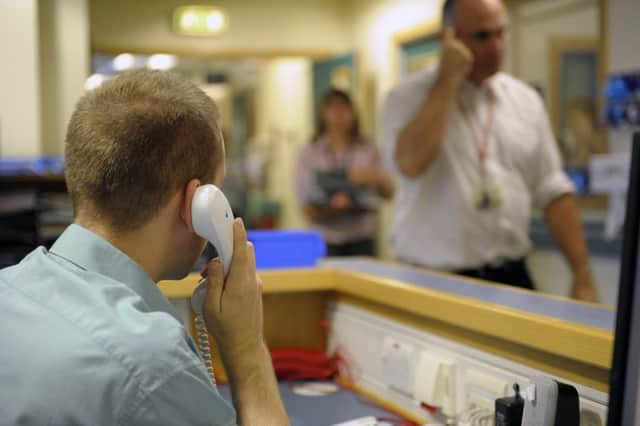Lizzy Buchan: NHS staff pledge must become reality


Across Scotland, GP practices are closing their lists, nurses are warning they cannot cope and hospitals are struggling to recruit specialists in areas ranging from paediatrics to gastroenterology.
Appropriate staffing levels are essential to patient safety and staff morale, yet hospitals are under increasing pressure to slash staffing costs as budgets are squeezed.
Advertisement
Hide AdAdvertisement
Hide AdTherefore Nicola Sturgeon’s pledge to enshrine safe staffing in law earlier this week seemed like an encouraging move to tackle one of the issues crippling the health service.
The First Minister certainly found a receptive audience when she delivered the promise during a speech at the Royal College of Nursing (RCN) Congress in Glasgow on Monday, where delegates gave her a standing ovation.
Compared to the challenging situation in England – laid bare by the recent junior doctors strike – Scotland certainly seems to be making all the right noises.
But each health service is very different and the challenges facing Scotland’s NHS are its own.
Medical leaders were right to be cautious in their welcome of Ms Sturgeon’s staffing pledge, for “the devil is in the detail”, as they say.
The workforce planning tools that will be enshrined in law are already in use by the majority of health boards and there is no discussion at this stage of any sanctions if they are not adopted.
Unions warned that these management tools are not intuitive enough or robust enough to address the pressures that wards are facing.
It is a good commitment but it must be backed by resources otherwise the promise risks becoming merely another blast of hot air.
Advertisement
Hide AdAdvertisement
Hide AdFurther discussions are due to take place over the summer and ministers must keep in mind that this is only a small step on a much bigger journey.
The struggle to recruit and retain staff did not appear overnight, nor will the solution.
It is a toxic cocktail born out of years of poor planning and rising demand, that stretches far beyond the current government. There have clearly been serious problems with planning as the most recent figures revealed more than 2,200 nursing and midwifery vacancies in March, a figure which has doubled since 2012.
It forms part of a vicious cycle, as higher vacancy numbers lead to more spending on costly private staff and a greater strain on cash-strapped health boards.
NHS boards are spending an eye-watering £64,000 each day on private staff – a 45 per cent rise on the previous year.
There will always be a need for some agency cover but this sort of sum is clearly an issue.
The SNP has started to show that it is serious about tackling workforce planning by pouring £27 million into training advanced nurses and investing in return to practice schemes.
The First Ministers’ recent commitment to retaining the bursary for nursing students and new plans to introduce a graduate medical programme are both welcome steps towards training the doctors and nurses of the future.
Advertisement
Hide AdAdvertisement
Hide AdBut this is not enough to reassure medics or patients that things are going to improve now.
It is encouraging that ministers are finally acknowledging the scale of the problem.
But it will take more than vague promises to solve it.